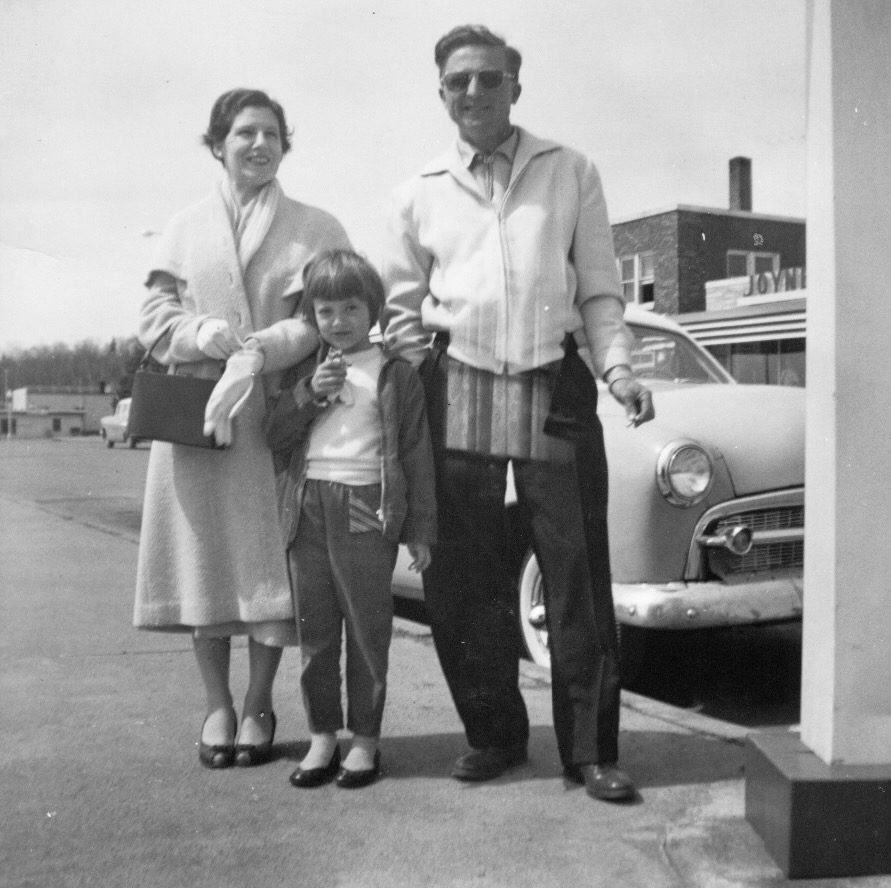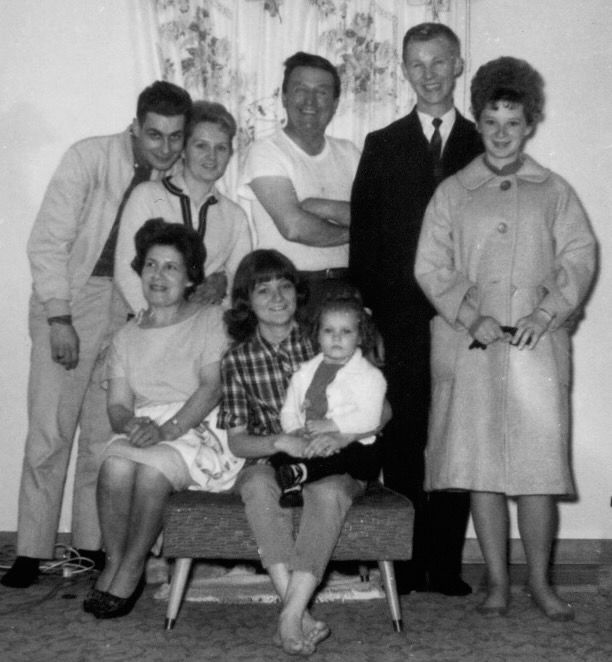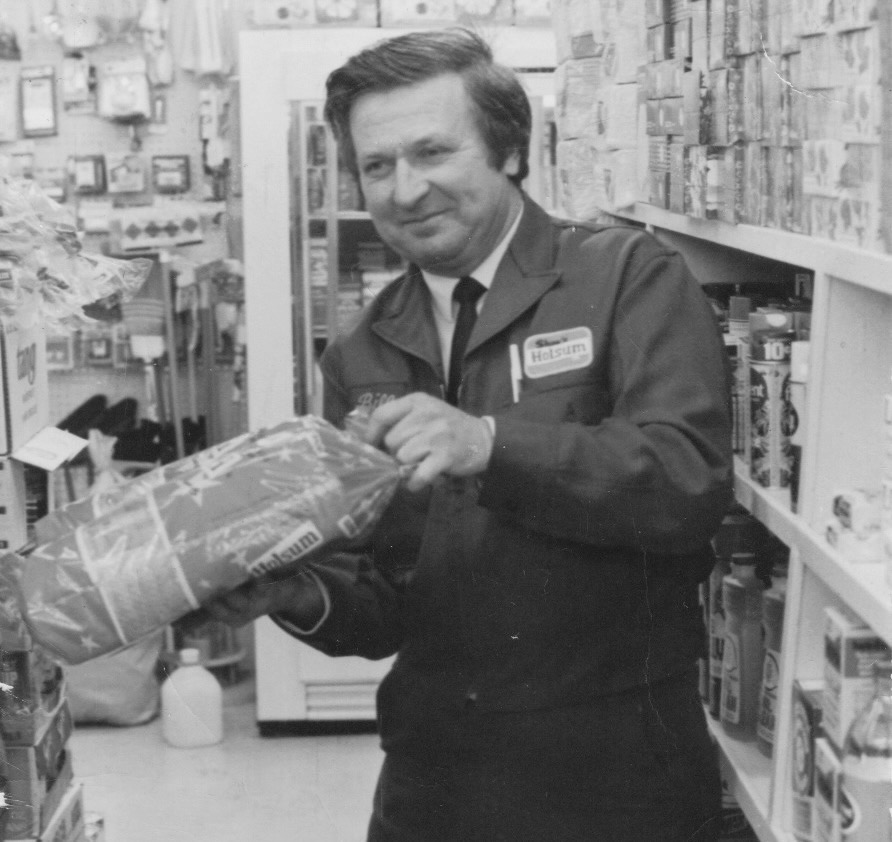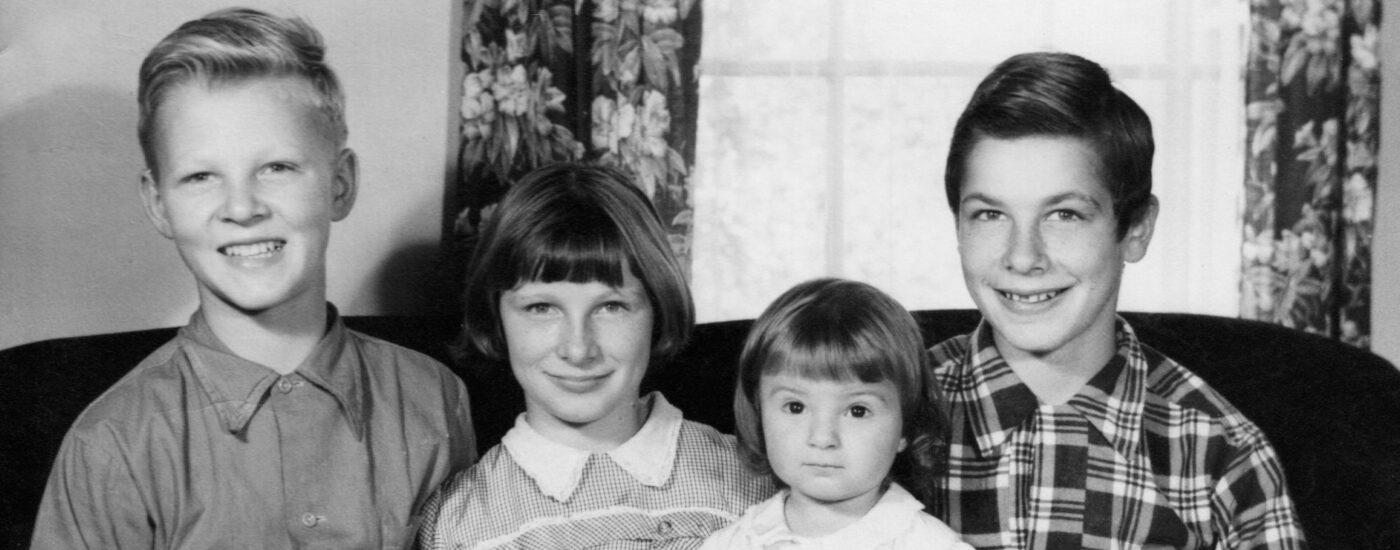In one of the upstairs bedrooms at 204, the one directly above the living room and first occupied by my two older brothers and then by me, there was this little foot-square wooden grate. It was on the floor right next to the bedroom door. It was at once, magical and terrifying. A source for carefree childhood fun, amusement and entertainment. But it was also the gateway to a monstrous family nightmare and terrible fear.
This grate was precarious looking at best. You could peer through it and see directly into the living room below. You couldn’t see much, just a checkered peephole view of the domestic scene below. But you could hear. Everything. Sometimes it was lighthearted and pleasant. Sometimes it was quiet and hushed. Whispery and full of secrets. Sometimes it was just the hockey game blaring and The Old Man cursing or cheering. Sometimes it was loud and terrifying. Crazy-making. I hated that the most.
When I was young I was afraid that if I stepped on it I would fall right through feet first, and either suffer some kind gross crippling injury, or die. In reality it was only about a nine-foot drop but to a kid it was dizzying. Like falling from the top floor of a New York skyscraper. Until I was well into my teens, I was the perfect size to slide right through. All it would take was one false move.
Wooden grates like this were a feature of wartime houses of that era. The heat from the oil furnace in the living room rose and heated the upstairs bedrooms. Once the oil furnace was replaced with gas and metal baseboard heaters were installed in every room of 204, the wooden grate was covered with hardwood, thus forever severing the connective tissue between upstairs and downstairs.
You know that expression, if these walls could talk? In this case, it was if this grate could talk, and oh the secrets it would reveal.
My fondest memories of the grate involved sending messages to Ma. In particular, I remember asking for things. Simple requests that I could have easily asked her in person. But it was much more fun to write a note on a tiny scrap of paper, fold it glider style and squeeze it through one of the squares of the grate. If I positioned it just right it would tumble into her lap but quite often these paper messages landed on her head. Young girl messages soared and sailed. Can I do this or that? Go here or there? Will you make me something to eat? Can Debbie sleep over tonight? Can I sleep at Debbie’s? Ma always said yes, of course. These were the happy recollections the grate would have disclosed.
But the darker story, the flip side of this lighthearted childhood memory, is the ugly reality that still haunts me, even as a grown women, years and miles away from the grate in the upstairs bedroom at 204. From this vantage point I witnessed domestic abuse, anger, fear, frustration, humiliation, sadness and sorrow. I watched Dr Jekyll turn into Mr Hyde.
The Old Man was an alcoholic who suffered from depression. By nature, he was a shy introvert. When he was in the army he discovered the transformative power of alcohol. After a few drinks, he went from a wilting wallflower to a burgeoning butterfly. From a young man afraid to look a pretty girl in the eye to one who extended his hand and asked her to dance. From the loner to the life of the party. From tongue-tied to blabber-mouth. Alcohol became his medication, his saving grace and a lifeline that momentarily kept the depression at bay, that made him feel less small, less weak and less vulnerable. It removed the cloak of invisibility and gave him a voice. It offered relief from the pain, even if it was only temporary. It was that good.
But there was a tipping point. One too many drinks and he turned into a fighter, a brawler, a nasty bully and ultimately a coward with a mean streak that could be traced directly back to his father, his nemesis and the object of his hatred and bitterness. To say there was no love lost between them would be a colossal understatement.
Ma fell in love with the shy, warm, kind and good humored Old Man. She met him while she was working at Porky’s Restaurant, so he was always sober when they were in the ‘getting to know you’ phase. That’s who she loved first. By the time she got a glimpse of the portentous contents of his metaphorical backpack, it was too late. She was in too deep. And like many women of that time, she had no idea how to get out. Plus, she loved him dearly. And she had good reason to. He wasn’t always a monster. Most of the time he was the sweet, loving, funny man she first met. The man all the customers on his bread route raved about and looked forward to seeing on his daily deliveries of Shaw’s Holsum White Bread and Persians. That was man I loved. He was my dad.
But I hated the other man. Wished him dead. Cursed him. The crazy intimidating monster I witnessed from above, the view from the grate. The man who ranted and raved in his drunken out-of-control state of mind about all the injustices inflicted upon his precious mother by his wicked father, his fucking old man. And there it was, plying out every single time he got drunk, the exquisite irony. Like father, like son; the sins of the father. There he was doing the exact same things to my precious mother that he railed and roared about his own father.
By the time I was old enough to comprehend what was happening in my family, The Old Man had gone from being a daily drinker to a binge drinker, a cyclical drunk. If you looked at a typical year in our lives, he drank on average six times. But those were six horrifying times. Because it wasn’t just six nights out of the year, it was the weeks and days leading up to the big night. The days of anxiety as we watched his behaviour change, his alter ego emerge, his patience wain, his humour dissipate, his kindness evaporate, his depression deepen, and his lust for emotional release escalate and intensify. The week before a bender, if The Old Man was even five minutes late getting home from work, Ma would pace the living room, wringing her hands, checking the front window for his car to appear in the driveway and sigh with relief when it did, and then dinner would be served. On the nights when the car didn’t appear, everything intensified. We knew what this meant. Things were going to get horrible. Things might get broken. Not just an ornament or a lamp. But our spirit, our faith, our hope, our hearts.
Of course, I don’t recall every single episode. But I once did. Thankfully, with the passage of time, they are now all blurry with softened forgiving edges, and the harsh details have faded.
Each episode was the same anyway, with the same plot line, same characters. Even after my brothers were married and their days of physically standing between Ma and The Old Ma were over, they remained our protectors. On these nights of holy terror, my older sister, Ma and I took refuge at my oldest brother’s home, where the Old Man would make nasty phone calls, swearing and threatening us but never appearing at his door. It’s the way of the coward. What I didn’t know then, and only learned after my son was born, that like all bullies if you stand up to them, call their bluff, they reveal their true character. Their hearts are more fragile than a spider’s web, and they are sad frightened small human beings. Powerless.
Those nights of peering through the grate, and wanting to magically evaporate; of praying The Old Man would die on his way home from the bar and put us all out of our misery, are far behind us. Just the residue of sadness remains within my being, a low-lying but ever-present soft depression. Sorrow. Ma is long gone. The Old Man is too.
Now with the grace, that only time and perspective can bestow, I have a profound understanding of The Old Man’s suffering and my heart is full to the brim and spilling over with compassion and love. Now I choose to remember the sweetness of my dad and the winsome paper airplane messages that drifted into my mom’s lap from the wooden grate above.



















